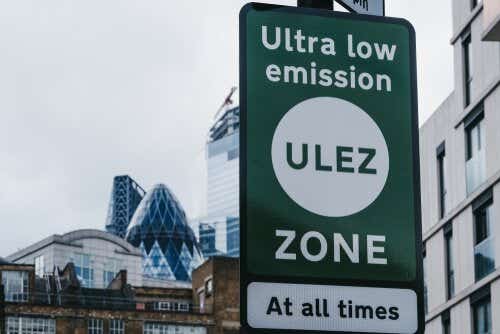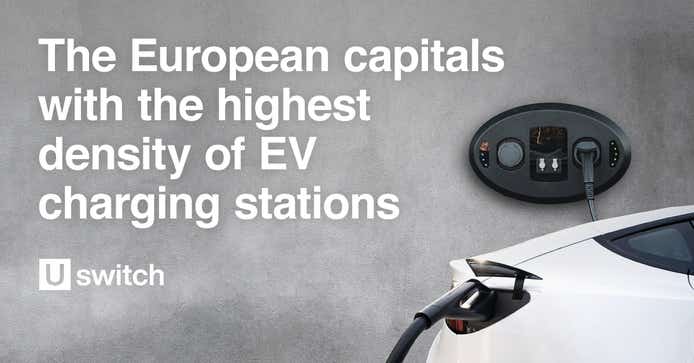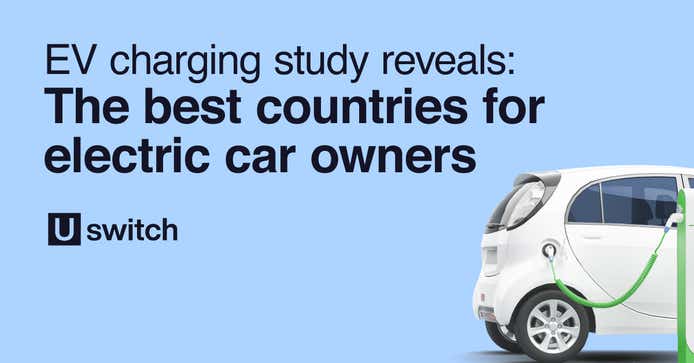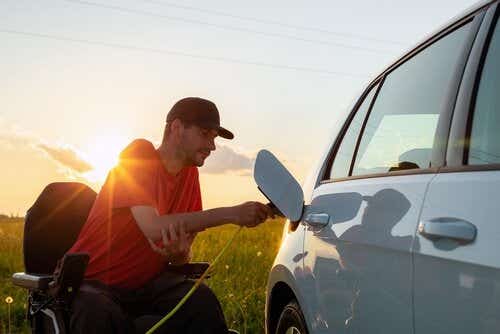EV home charging point installation
Charging an electric car at home is the cheapest and easiest way to keep your battery topped up. Find out why and how to install one here.

Alfen S-line with Hive Platform
Uswitch exclusive
from
£939
(inc. standard installation)
10% to 100% Charge:
7 hours
Max power:
7.4kW
Compatibility:
Type 1/2 EV-Ready

Can you charge an electric car at home?
For many people, the best way to charge an electric car will be at home rather than at public electric charging points. This is because:
- A home charging point is solely yours to use - you don’t have to run the risk of a public charging point not being available when you need it
- You can charge the car whenever is most convenient - many people do it overnight so it’s ready to go in the morning.
Additionally, with the electric vehicle market projected to grow significantly in the next five to ten years, a home charger is going to be an increasingly desirable addition to any home.
How does EV charger installation work?
Decide on the position
The installer will help you decide on the position of the charger based on where you park your car and what sort of charger you’re getting.
Fit the charger
The installer will fix the charger in position and connect it to the mains power supply.
Final safety checks
There will be a few final safety checks before the installer demonstrates how to use the charger.

How do I choose the right EV home charger?
When you choose an EV home charger, you'll need to think about factors including:
- Your budget - how much you can afford to spend on a charger could dictate which charger you go for.
- Power - you can save money by opting for a lower power charger, though it'll take longer to charge the car.
- Tethered or untethered - a tethered charger has the cable attached, while an untethered charger allows you to attach your own cable, giving you more flexibility but a bit more hassle.
Can I install an EV home charger myself?
It’s not recommended that you install an EV home charger yourself - it should always be done by a qualified and certified electrician. This ensures that the installation will be done safely and not jeopardise any warranty that might be applicable to the charger you choose.
How long does it take to install an EV home charger?
It should only take a couple of hours or so to install an EV home charger, though this will depend on the type of charger and where it is being installed.
Unsure if you need an EV home charger?
Find the advice you need for the stage you're at here.
If you're thinking about getting an EV, what do you need to consider when it comes to charging?
My EV is on the way
If you've ordered an EV, what do you need to do to prepare for its arrival?
I already have an EV
If you have an EV and you're considering installing a home charger, we can help advise you.

Uswitch EV charging map
Need to charge your EV when you're out and about? Uswitch’s electric car charging points map will help you plan your journey and make range anxiety a thing of the past.
Scroll around the map, search by postcode and use the filters provided to find the nearest, quickest and cheapest EV charging stations.
“The Department for Transport reports that transport is responsible for 26% of total UK greenhouse gas emissions, with over half of the UK’s transport emissions coming from cars.
“With an increasing number of environmentally conscious consumers, more accessible technology and government incentives to reach the UK’s 2050 Net Zero carbon emissions target, the EV market is projected to grow significantly.
“For many people, the most convenient way to charge an electric car will be at home. Not only will a home charger ensure you always have access to a charging point but it could increase the value of your property.”

How many public EV charging points are there in the UK?
There are thousands of public charging points across the UK which help make electric vehicles accessible for drivers.
As of February 2024, Zap-Map estimates that there are over 32,000 locations with public charging points installed with over 87,000 EV connectors.
This matches the demand for charging stations. In the past ten years, the number of cars per Plugin Electric Vehicle charging point has risen from just one EV in 2011 to 19 EVs in 2021.
Finding an available public charging point may become increasingly competitive.
For many, the reliability and convenience of a home charger will outweigh the initial cost of installation.
Electric vehicle charging FAQs
Can I charge my EV for free?
While charging your EV at home will cost you depending on your electricity tariff and the time of day you’re charging, there are many free public charging points available across the UK. Supermarkets are a particularly good place to look - Tesco, for example, has over 600 around the country. Additionally, many hotels have free charging points for guests’ use, and workplaces are increasingly investing in EV charging point installation for employees.
How much does it cost to charge an EV?
A home EV charging station could cost as much as £1,600 for the charger and installation combined. The ongoing cost you then need to consider is the daily cost of charging the electric car, which is why it’s important to make sure you’re on an electricity deal that works for you, whether it’s an EV-specific tariff or not.
How do I pay for charging my electric car?
You’ll pay for electric car charging in the same way you pay for your electricity currently - whichever method you use and how often you pay it. It’ll probably be included in your current electricity bill, though, so you should be prepared to pay more for that than you used to (though this will be offset by the money you were spending on diesel or petrol).
Can you charge an electric car at home with a normal plug?
Electric car charging at home with a normal plug is possible, but it should be a last resort. This is because it’s incredibly slow and if the car has a large battery, which many increasingly do, it could take over a day to fully charge it with a standard three-point plug that runs at 3kW.
This is why specific chargers are recommended - they can charge at up to 22kW, though most suppliers offer 3kW or 7kW as standard.
Is charging electric cars at home expensive?
The cost of electric car charging at home varies significantly depending on your car, your charger, the amount you need to drive and therefore charge, the type of electricity tariff you have and subsequently the time of day (or night) you’re charging your car. It can significantly increase your electricity bill, but you won’t be paying for petrol or diesel (unless you have a hybrid) so there may not be too much of a difference in terms of your overall outgoings.
Electric car carbon footprint calculator
Are electric cars better for the environment? Check out the Uswitch EV impact calculator to calculate how much CO2 you could save by switching to an electric vehicle.
Our services are provided at no cost to you. We may receive a commission from the companies we refer to you, but this does not affect what you will pay for the product you choose.






